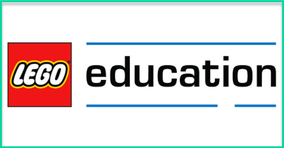teaches science and coding in a hands-on way

Through a series of collaborative challenges, they deeply engage with science, engineering, technology, and coding, sparking a love for experimentation and investigation. Teachers receive support through training, curriculum and built-in assessment. The result – a resource that builds students’ confidence to ask questions, define problems, and design their own solutions by putting scientific discovery in their hands.
“Teachers know that science and technology skills are crucial for today’s elementary school students, but providing engaging projects that mean something in the real world is a challenge,” said Jeffrey Marlow, a Geobiologist at Harvard University and founder of The Mars Academy education and development program. “WeDo 2.0 offers projects that let students discover the surface of Mars with a model rover, or explore the Amazon rainforest through frog metamorphosis. These science lessons do more than just teach students facts to memorize - they represent an immersive experience that instills a deeper understanding of the scientific method and evidence-based reasoning. Not only are these skills central to science- and technology-based fields but providing a platform for our students to spark that one idea that could change the world is something they can build on for the rest of their lives.”
The wireless platform includes a Bluetooth low-energy Smarthub element; an electronic based building brick that is part of the LEGO Power Functions (LPF); a new technology platform for LEGO Education; one motor; one tilt and one motion sensor. The WeDo 2.0 Core software is an essential and easy-to-use component that is colorful, age-appropriate and has a drag-n-drop interface that is graphical in nature. It also contains a documentation tool that enables students to document their problem solving process and provides an assessment opportunity for teachers.
LEGO Education WeDo 2.0 is available today on iPad, Android, PC, and Macs. Chrome Book support will be available in the second half of 2016. A Scratch interface for WeDo 2.0 (both web-based and stand-alone) will be available for Macs in February 2016 and for PC/Windows in June 2016. For information on how to implement LEGO WeDo 2.0 in your school, or how to transition to WeDo 2.0 from WeDo, visit www.LEGOeducation.us/WeDo
About LEGO® Education:
LEGO® Education offers playful learning experiences and teaching solutions based on the LEGO® system of bricks, curriculum-relevant material, and physical and digital resources to preschool, elementary, middle school, and after school. In partnership with educators for more than 35 years, we support teaching in an inspiring, engaging, and effective way. Our educational solutions, which range from humanities to science, enable every student to succeed by encouraging them to become active, collaborative learners, build skills for future challenges, and establish a positive mind-set toward learning.
LEGO and the LEGO logo are trademarks of the LEGO Group. ©2016 The LEGO Group.












